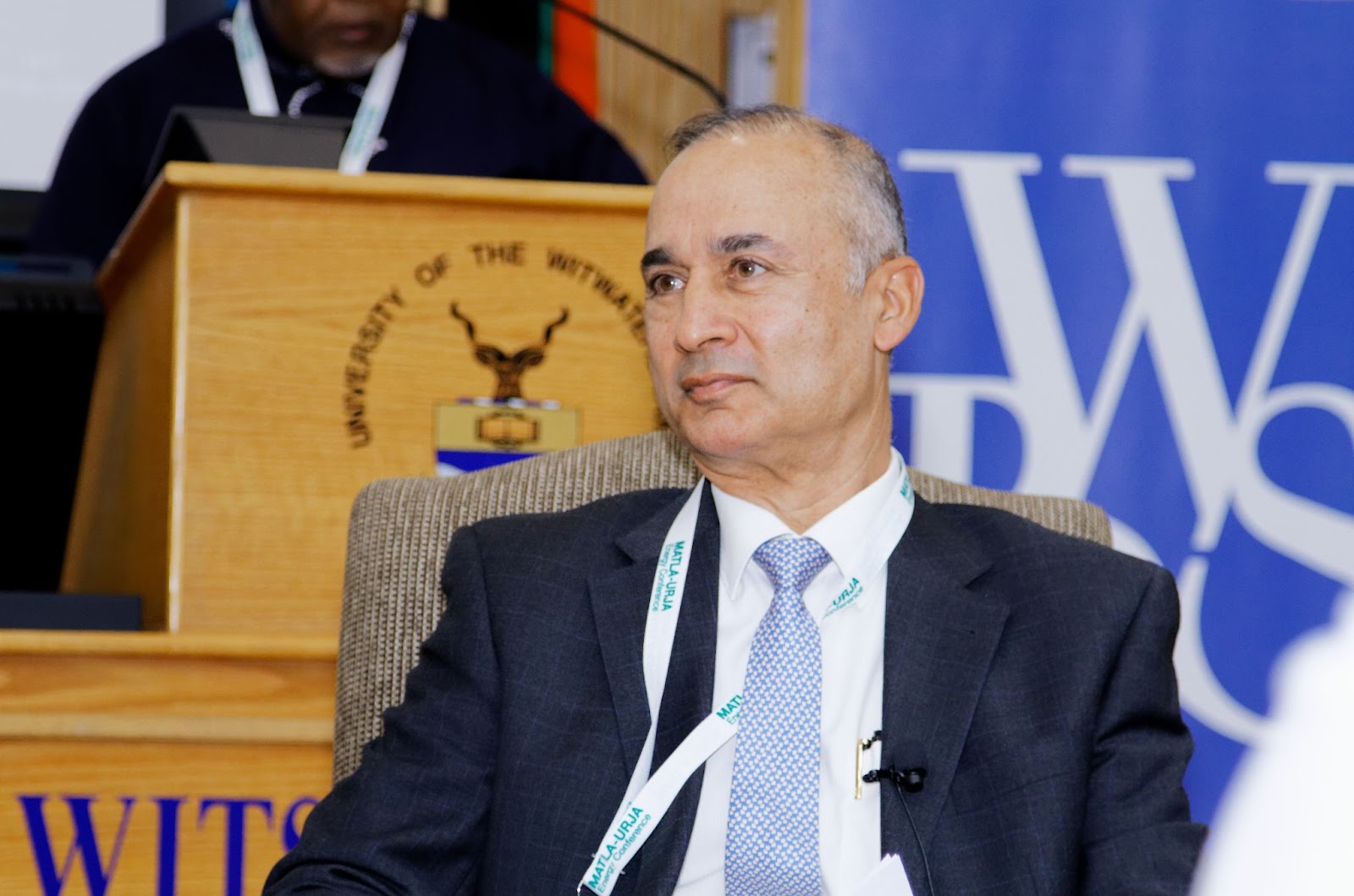Edison Markwarela, Eskom, Nomathemba Kgorane, Sasol
The energy sector is undergoing profound changes globally. Discussions at the Matla-Urja Energy Conference, held on 27–28 November at Wits Business School, outlined the challenges and opportunities in South Africa and beyond.
As the energy sector shifts towards sustainability, decentralisation and digitalisation, infrastructure innovation and workforce transformation have become central to ensuring a resilient energy future.
Global energy demand continues to rise, driven by emerging economies, including India, China and countries across Africa. Advanced economies are seeing steady or declining demand, while nations like South Africa grapple with balancing growth and a just energy transition. The integration of renewable energy sources, the rise of distributed generation, and smart grid innovations are reshaping energy consumption and production.
Dr. Yatindra Dwivedi, Director, Power Grid Corporation Limited, outlined how technological interventions from digital substations to augmented reality for maintenance and renewable energy management centres, are transforming grid operations. “The digital era has opened unprecedented opportunities for efficiency, reliability and sustainability,” said Dwivedi.
Dwivedi also highlighted that modern energy infrastructure must cater to decentralised energy generation and integrate advanced technologies. South Africa’s Eskom has embarked on replacing traditional meters with smart meters, which provide remote monitoring, enable dynamic pricing, and facilitate demand-side management.
“India’s extensive grid modernisation provides lessons to South Africa,” said Dr. Dwivedi. He shared examples of how India is integrating large-scale renewable energy, deploying battery energy storage systems and planning underwater transmission cables to enhance connectivity and stability. South Africa, aiming to integrate an additional 56 GW of renewable capacity by 2030, must address similar challenges, particularly in transmission expansion.
Skills for the future workforce
The energy transition demands a workforce skilled in emerging technologies, sustainability practices and digital tools. Dr Tripta Thakur, Director General: National Power Training Institute, joined the discussion virtually and emphasised the need for targeted training to bridge skill gaps in grid digitalisation, renewable energy integration and advanced maintenance techniques. “South Africa can adopt similar training models to upskill engineers and technicians for its evolving energy systems,” she said.
She went on to discuss how India introduced AR/VR training modules and predictive maintenance systems. These technologies not only improve operational efficiency but also prepare professionals for real-world scenarios.
Balancing traditional and renewable energy
 Sunil Kapur, President: Africa Region, The Tata Power Company Limited
Sunil Kapur, President: Africa Region, The Tata Power Company Limited
Sunil Kapur, President: Africa Region, The Tata Power Company Limited joined the discussion and explained that “fossil fuels still play a critical role in providing baseload power, particularly during the energy transition.” While renewables are central to South Africa’s future energy mix, Kapur was quick to note that firm and dispatchable renewable energy is still not in place to instantly replace fossil fuels. Addressing the intermittency of solar and wind power through storage solutions or complementary technologies like biomass and small-scale hydro will ensure grid stability and reliable supply.
An audience member from India’s Jindal Power also outlined how coal-fired plants remain essential to meet current energy demands. However, modernisation through the adoption of supercritical technologies can reduce emissions and improve efficiency.
Regional integration and collaborative solutions
The Southern African Power Pool (SAPP) offers a framework for regional cooperation, enabling electricity trade and shared infrastructure investment. As South Africa and India strengthen bilateral ties in energy, lessons from India’s regional collaborations in South Asia can guide investments in transmission interconnectors and renewable energy corridors across the SADC region.
A memorandum of understanding (MoU) signed between Eskom and India’s NTPC shows the potential for knowledge sharing in areas like plant modernisation, renewable integration and skills development. These partnerships can accelerate South Africa’s energy transition while addressing localised challenges such as grid reliability and access to financing.
Financing energy transition
The cost of modernising energy infrastructure and transitioning to renewables is significant. South Africa’s Just Energy Transition Partnership (JETP), backed by $8.5 billion in international funding, focuses on phasing out coal while enhancing renewables and energy access. However, gaps remain in funding new projects and supporting the workforce transition.
Private sector participation, as demonstrated by Indian firms like Tata Power and Power Grid Corporation, offers a pathway to diversify financing and bring technical expertise. Localising manufacturing for components like smart meters and battery systems can also reduce costs and bolster supply chain resilience.
Challenges and opportunities
The transformation of energy infrastructure and professional expertise presents challenges. Intermittent renewable energy requires robust storage and grid management. Legacy systems must be upgraded to integrate with digital and decentralised solutions. Skilled professionals are essential to implement and maintain advanced systems effectively.
Yet, opportunities abound. South Africa’s vast renewable resources position it as a potential leader in green energy production. Innovations in AI-driven grid management, drone inspections and predictive maintenance can improve operational efficiency and lower costs. Regional cooperation and global partnerships can bring technical, financial and strategic support.
The future of energy infrastructure and power professionals lies in embracing digitalisation, sustainability and decentralisation. The Matla-Urja Energy Conference really exposed the potential of collaborative approaches between South Africa, India and other global partners. By investing in advanced infrastructure and equipping its workforce with the necessary skills, South Africa can ensure a reliable, inclusive, and sustainable energy future.